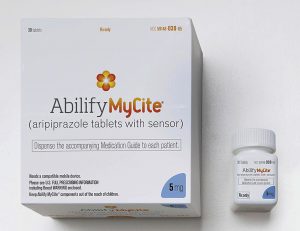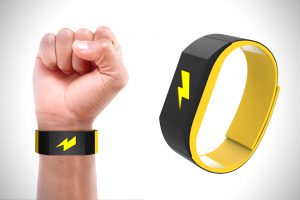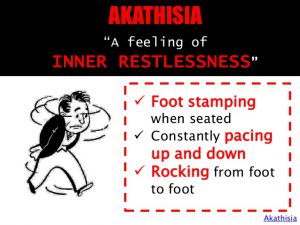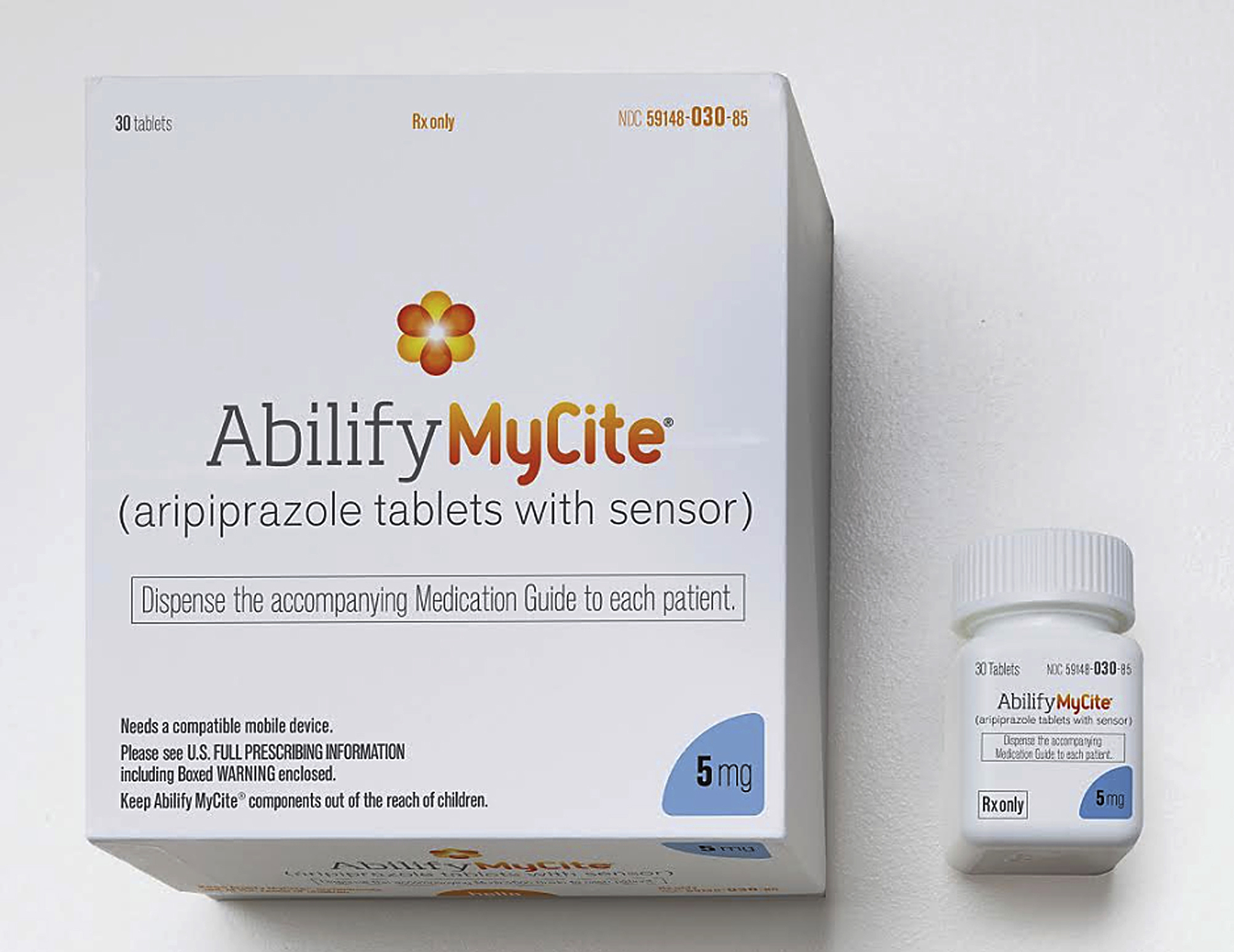 Mandatory Vaccines and now this!
Mandatory Vaccines and now this!
In my last post I talked about mandatory vaccines and how the pharmaceuticals are taking over our health, not in a good way. This post ‘digital pill approved’ informs the reader that the FDA has approved use of a pill which has a tracking sensor inside it to monitor the patient and make sure they don’t skip their medication! The name – Abilify MyCite (aripiprazole pill with sensor).
Good idea?
This may seem a good idea at first because the patients in question will initially be those needing psychiatric treatment. This sensor pill is intended to help prevent the patient skipping their medication and the possibility of going into some kind of manic condition which could be dangerous for them or the general public.
Or opening the flood gates
What I don’t like about this initial approval of digital invasive medication is that it opens the flood gates for all other pharmaceuticals to come out with all kinds of technology, some of which we may not want in our bodies. Is this the slippery slope leading to us being overtaken by allopathic medication and procedures which we don’t want and don’t need?
Will it improve medication compliance?
But there has been no research showing that this sensor pill will actually improve a psychiatric patients’ medication compliance. In fact, when a psychiatric patient stops medication they are likely not to be bothered one way or the other. Anyway, what’s going to happen if the patient is not taking the medication, some sort of reminder? A remote admonishment from the doctor, a little jolt from the sensor? How about one of these compliance shock bracelets which is given if a person doesn’t go to the gym? Am I being flippant? These bracelets are actually on the market folks!
Press Release
This news was released by a press announcement on November 13th 2017 and below is the summary of that statement:
“FDA approves pill with sensor that digitally tracks if patients have ingested their medication” and in a sub-heading: “New tool for patients taking Abilify”
 Mitchell Mathis MD of FDA
Mitchell Mathis MD of FDA
Dr Mitchell Mathis, director of the Division of Psychiatry Products in the FDA’s Centre for Drug Evaluation and Research stated: “Being able to track ingestion of medications prescribed for mental illness may be useful for some patients”. He continued: “The FDA supports the development and use of new technology in prescription drugs and is committed to working with companies to understand how technology might benefit patients and prescribers.”
Manufacturer of drug is Otsuka Pharmaceuticals
According to the press release the FDA granted the approval of Abilify MyCite to Otsuka Pharmaceutical Co., Ltd. The sensor technology and patch are made by Proteus Digital Health.
Andrew Thompson, the chief executive of Proteus Digital Health who make the sensor and patch said that this technology would allow patients “to engage with their care team about their treatment plan in a new way”. He is evidently already in talks with other pharmaceuticals regarding using this technology for treatments for various chronic conditions!
How does it work?
The patient has to wear a patch which transmits information to a smart phone or similar device. This transmission comes from within the sensor pill inside the patient’s body. It is supposed to give the patient the ability to track the ingestion of their medication on their phone. But and this is a big but, the patient’s caregiver or physician can also access this information ‘through a web-based portal’ (with the patient’s permission, of course).
Boxed Warnings
Abilify MyCite (aripiprazole pill with sensor) is available for all kinds of mental treatments such as schizophrenia, bipolar disorders and depression in adults. It has plenty of warnings on its information leaflet including a Boxed Warning advising health care professionals that elderly patients with symptoms of dementia type psychosis are at an increased risk of death if medicated with antipsychotic drugs of which this is one.
 Increased risk of suicidal behaviour
Increased risk of suicidal behaviour
There is also a warning that there may be an increased risk of suicidal thoughts and suicidal behaviour in children and young adults who are taking antidepresssants. But the safety and efficacy of Abilify MyCite has not been demonstrated in pediatric patients. Thus these patients must be monitored. The medication must be given with a medication guide to inform the patient about how the drug should be used and the risks involved.
Side Effects of Abilify
When clinical trials for Abilify were done there were a number of unpleasant side effects that were reported including:
- Akathisia (uncontrollable body and limb movements

- Anxiety
- Insomnia
- Restlessness
- Dizziness
- Headaches
- Constipation
- Vomiting
- Nausea
- Irritation of the skin at the site of the patch
The truth of the matter
As far as the large pharmaceuticals are concerned, non compliance with drug regimes is a widespread problem for them and the general medical fraternity. Less usage of drugs and products mean less profits and if they can find a way to make a patient ‘comply’ and take their medication regularly as prescribed, all the better for big pharma but not necessarily better for the patient who often has to deal with side effects as well as a drug with low efficacy.
Why do some patients not take their pills?
 There may be many reasons patients don’t take their medication and it does not concern just those on psychotic drugs. The poor suffering patient is often having to put up with unbearable side effects and not taking their medication could be a desperate measure to stop unwanted symptoms caused by the drug. Patients are not stupid, they know what they felt like before taking the drug compared with post pharmaceutical drug administration. I know of 5 people not taking their medication at this
There may be many reasons patients don’t take their medication and it does not concern just those on psychotic drugs. The poor suffering patient is often having to put up with unbearable side effects and not taking their medication could be a desperate measure to stop unwanted symptoms caused by the drug. Patients are not stupid, they know what they felt like before taking the drug compared with post pharmaceutical drug administration. I know of 5 people not taking their medication at this present time, because of side effects and all of them have not told their doctor. ED is a common reason men don’t take their medication. For those in the US, if you have reason to believe you have had side effects from a drug that has affected your quality of life, then contact a lawyer. This is one I picked out at random just to give you an idea what they will do. By the way, I have no affiliation with any lawyers in the US, this is just an example.
present time, because of side effects and all of them have not told their doctor. ED is a common reason men don’t take their medication. For those in the US, if you have reason to believe you have had side effects from a drug that has affected your quality of life, then contact a lawyer. This is one I picked out at random just to give you an idea what they will do. By the way, I have no affiliation with any lawyers in the US, this is just an example.
We are too trusting
Apart from the downsides already mentioned, what about those patients who are not au fait with what drugs they are taking. Many people, especially the elderly just take their drugs like good patients and trust their doctor to prescribe safe and effective medication that will do them no harm.
3rd leading cause of death is allopathic medicine
As the 3rd leading cause of death in the US is by allopathic medicine, this faith in our medical practioners is too freely given. We forget that health professionals are mostly governed by those affiliated to the pharmaceutical industry. Medication Errors (MEs) are a common cause for iatrogenic adverse events.
 How long before mandatory medication?
How long before mandatory medication?
I think there is no doubt that these digital sensor pills, which are obviously going to command a high price, will be seriously touted by the pharmaceuticals. It is big pharma’s normal practice to give various ‘sweeteners’ to medical practitioners for prescribing their expensive medications in place of what is normally prescribed and I can see vulnerable patients being easy targets and not always knowing what they are ingesting.
What about data security?
There have been many concerns about data security and digital medicine being used coercively. Those in a hospital environment or living in care homes are particularly exposed and wide open to being used as guinea pigs to test digital systems. Some would have no idea what was going on.
What about surveillance?
This kind of device could be used for all types of surveillance and believe you me, it will be. Apart from that, having sensors triggered by electromagnetics could be dangerous to health. Where is the research that proves this would not be the case?
The pitfalls are shocking
This technology will slowly and incidiously creep into our lives. Before long we will take no notice of having a sensor stuck somewhere in our body. We could be monitored going to the shops, we could be checked as to how fast we’re driving our car. Instant tickets, how about that! We could be checked as to who we are seeing and conversing with. We could be checked on how many times we visit the bathroom….and other things! The mind boggles and I don’t like it, what about you?
Spread the word!


I’m a huge supporter of technology and science. Advances in these fields have increased our understanding of knowledge and how medicines work and affect the body.
However, there are so many big pharma companies here in the US that only see their HUGE bottom line. There are so many affordable and practical medications and treatments that can actually make us better, FDA doesn’t always seem to show integrity in its choices (I’m basing this off the fact that they don’t even regulate bottled water).
Do you think something that is “FDA Approved” is even a credible or viable source for safety?
I’m one of those people with horrible side effects to the standard “blood pressure medication” and I had to switch to something that was more prescribed for cholesterol control, but it works better for me.
Hi Chrissy and I’m completely sympathetic to your comments and feel as uneasy as you are about the priorities of the pharmaceuticals being profits above customers because that’s how they look upon those ingesting their drugs. The FDA is under the control of the pharmaceutical industry, that is something that has been proven. The revolving door between governmental agencies such as the FDA and big pharma is well known.
No, I don’t believe ‘FDA approved’ should be trusted to be credible or safe and your side effects probably are a good reason why you should be suspicious. I sincerely hope you’re not on statins. They have been proven to be no good especially for women. Diuretics and other kidney medication damages your kidneys because they actually stop the kidneys working as they should, causing trauma. In the end, people on these drugs will slowly succumb to kidney disease, so I’m glad you have rebuked them. Mg is a natural statin and actually controls the production of cholesterol depending on the body’s needs. Mg also keeps blood pressure naturally at optimum levels.
Technology has been a blessing and a curse at the same time. This blog post on Abilify’s digital pill is a perfect example of how technology can be beneficial to ensure that patients needing life sustaining drugs take them regularly. I understand that side of the innovation, since I have worked with the public who have suffered from mental illness. Every time there was a major problem with their behavior it seem to all be from not taking their medication. The scary part which I also agree with is how far will the pharmaceutical company’s go with invasive tracking pills and for what use! All drugs have side effects, but this digital pill needs strict parameters to focus on patients in the most need or at risk to the general public. Great post!
Thanks Edgar, couldn’t put it better myself! As you said, ‘all drugs have side effects’ and this is the most worrying problem in our modern medicine which seems to be run, nearly completely, by the pharmaceutical industry. That being the case, how far will they go to get maximum revenue from this invasive type of medication, especially when it appears that their main concern is profit, over patients’ welfare.
Technology is amazing, and I love the positive impacts that it has had on my life. However, with that said, things like this freak me out! I don’t need that much invasion into my personal information/space. This product looks like it could be leading toward regulating mandatory medicating, and “them” knowing whether or not we are following the required mandates. Thank you for sharing the not-so-good side of technology mixed with medicine.
Thanks for reading the post Angie. Yes, it certainly is scary when you really start to ponder on what this could be the start of. I sincerely hope that digital medication such as this will be refused by those that don’t want it in their bodies. Trouble is, some patients will probably not even know they have ingested such a pill. The elderly and those with dementia type conditions will be especially vulnerable.